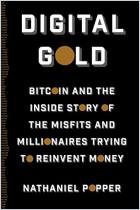
Read or listen offline
Amazon KindleRecommendation
Given the considerable attention Bitcoin is receiving in the media and from various governmental agencies, this report is a timely, even necessary overview. Mercatus Center researchers Jerry Brito and Andrea Castillo assume readers have no prior knowledge of Bitcoin – the virtual currency plus electronic payment system – so they clearly, methodically explain how bitcoins work. Their primer delves into the system’s origins and incorporates fairly recent media coverage of this technological phenomenon. The authors present a largely balanced discussion of the pros and cons of the “digital currency,” though they tend to come out in favor of Bitcoin’s potential benefits and against intrusive government regulation. getAbstract recommends this report to anyone intrigued by what could turn out to be the virtual currency of the digital future.
Summary
About the Authors
Jerry Brito is a senior research fellow and director of the Technology Policy Program at the Mercatus Center, where Andrea Castillo is an associate for the Spending and Budget Initiative.




















Comment on this summary